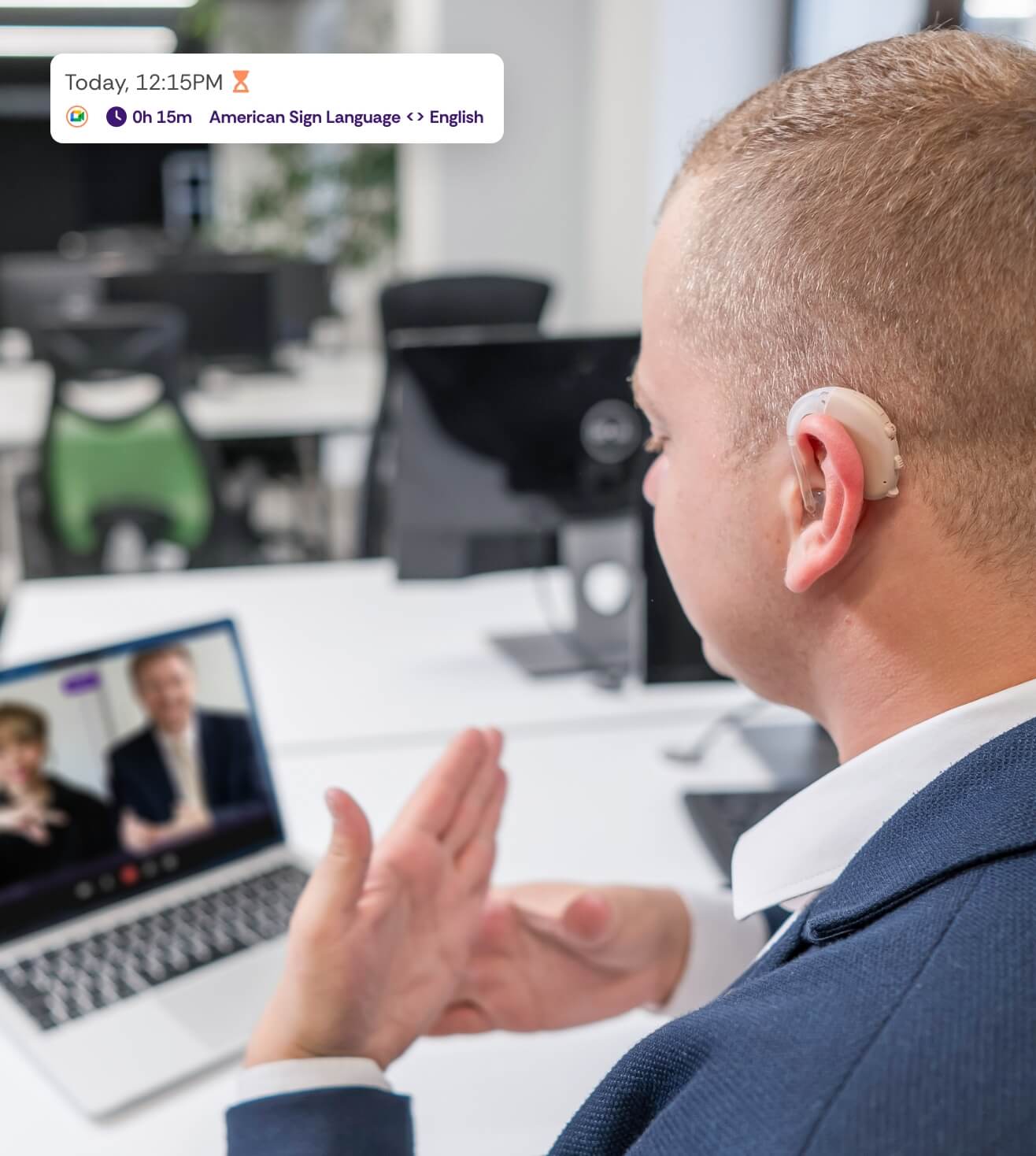

People use ASL as their primary language in the United States
The National Census of the Deaf Population

People in the United States aged 12 years or older have hearing loss in both ears.
U.S. Department of Health & Human Services

Most commonly used language in the US, after English and Spanish.
Commission on the Deaf and Hard of Hearing
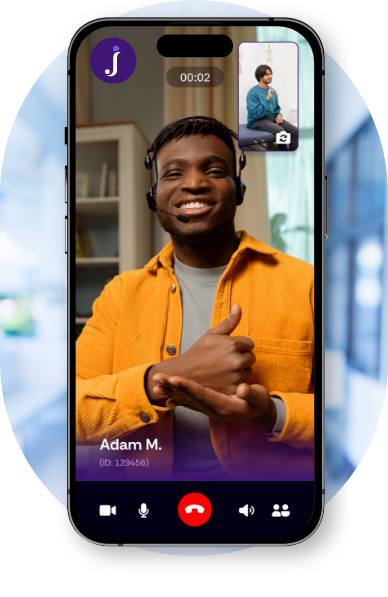
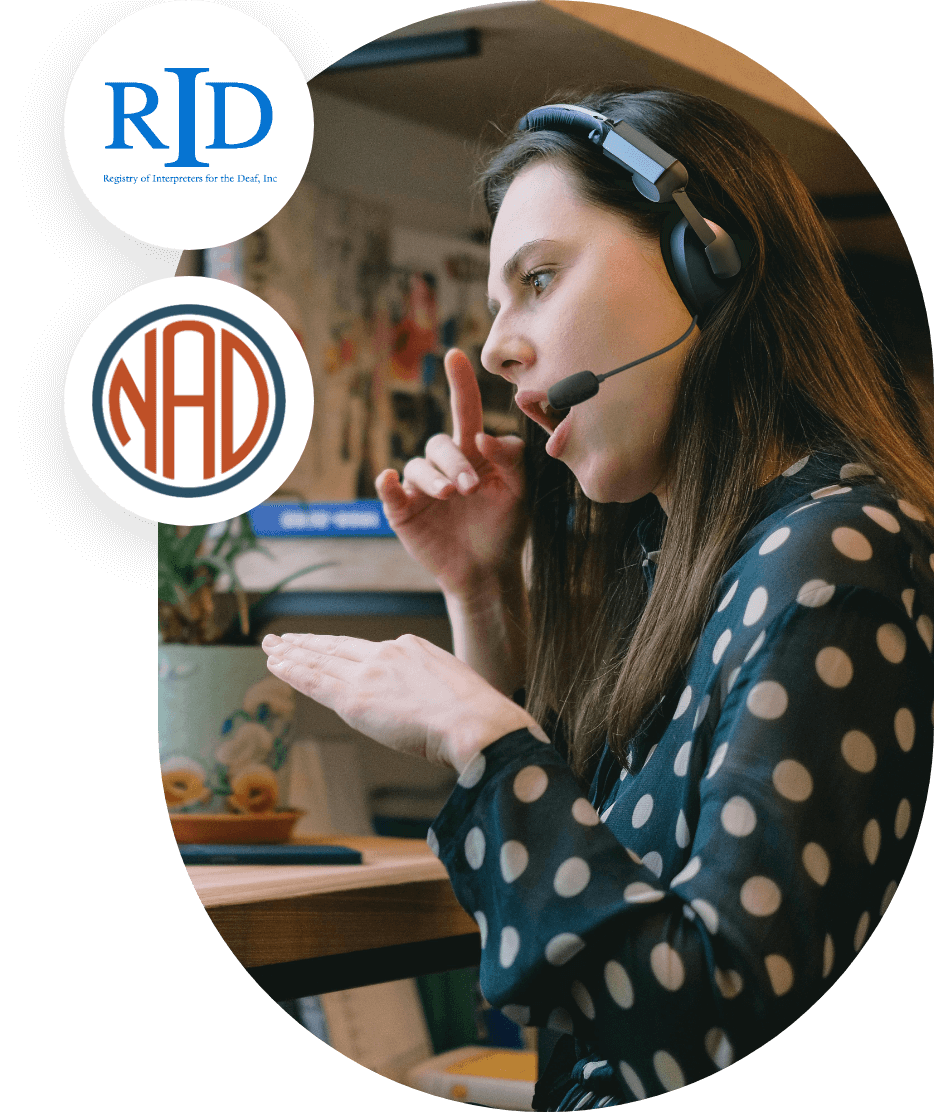
ASL interpreters on Jeenie have an average 10 years of experience with skill sets and certifications to meet the needs of highly regulated and specialized situations.
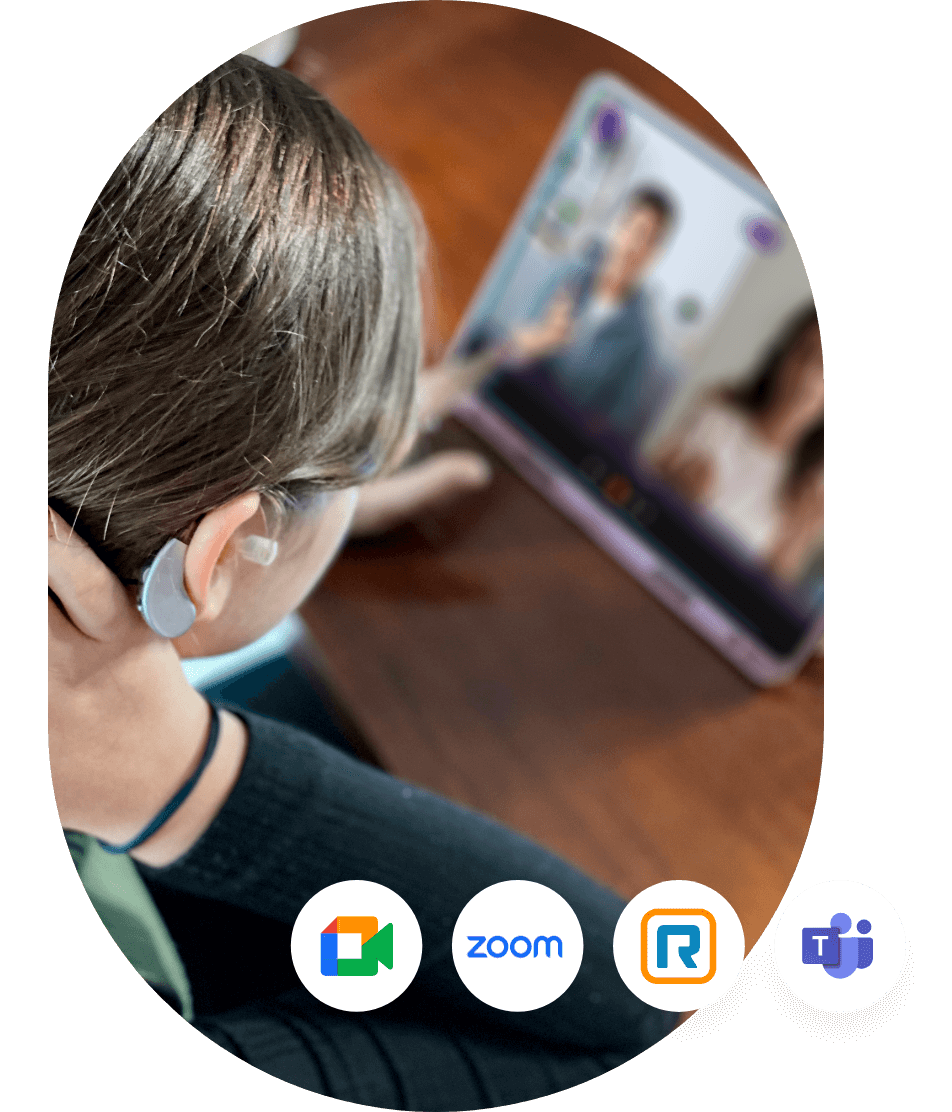
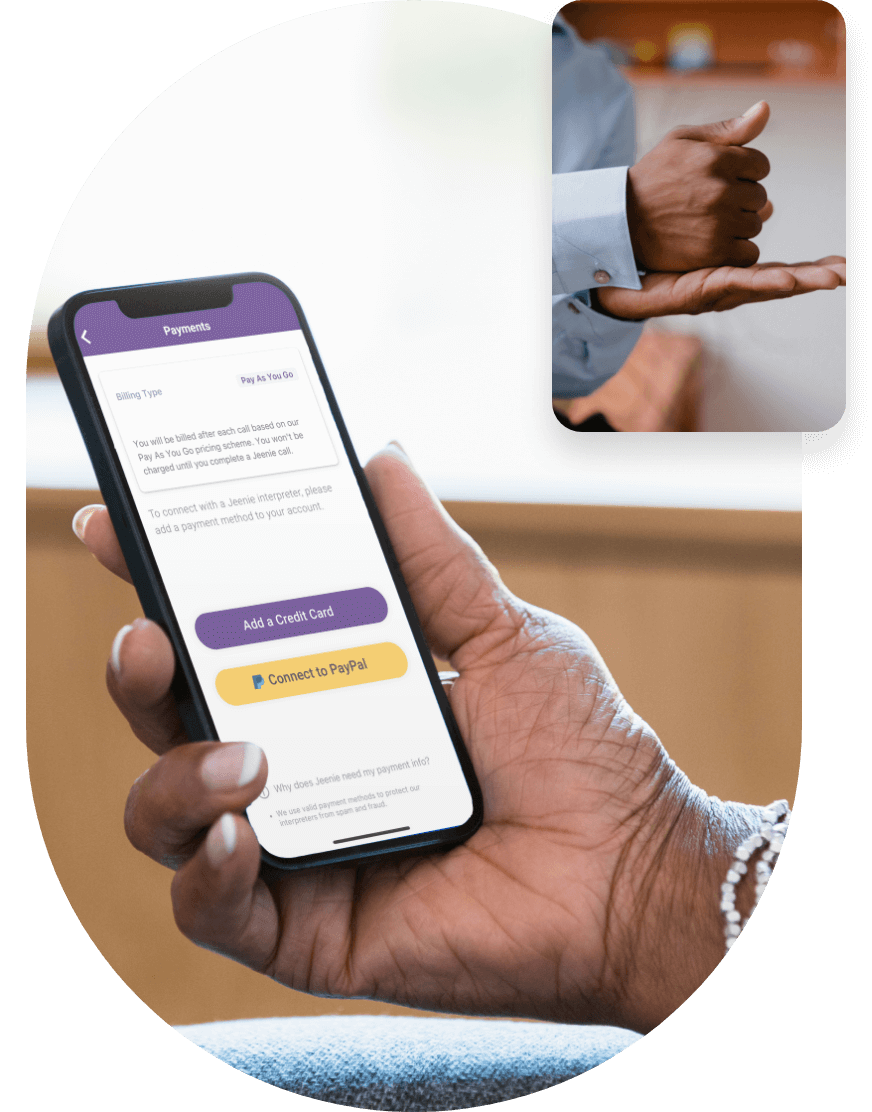
Inclusivity and accessibility are at the heart of everything we do. We’re committed to providing the most seamless experience for the Deaf and hard of hearing community. With Jeenie, video is the same rate as audio-only, removing any barriers to communication.
HIPAA-certified ASL interpreters empower patients to fully understand their diagnoses and make the most informed decisions about their care.
Qualified ASL interpreters help bridge the communication gap, making sure Deaf and Hard of Hearing students, parents, and legal guardians can fully engage with lessons and classroom activities.
With ASL interpreting, Deaf individuals receive fair representation and equitable access to legal processes and humanitarian services, ensuring their voices are heard.
ASL interpreters ensure Deaf and Hard of Hearing participants can fully engage in government forums and meetings, shaping policies and community outcomes.
ASL interpreters help organizations connect with and engage Deaf and Hard of Hearing members of the communities they serve. Furthering missions where no one is left unheard.
HIPAA-certified ASL interpreters empower patients to fully understand their diagnoses and make the most informed decisions about their care.

Qualified ASL interpreters help bridge the communication gap, making sure Deaf and Hard of Hearing students, parents, and legal guardians can fully engage with lessons and classroom activities.

With ASL interpreting, Deaf individuals receive fair representation and equitable access to legal processes and humanitarian services, ensuring their voices are heard.
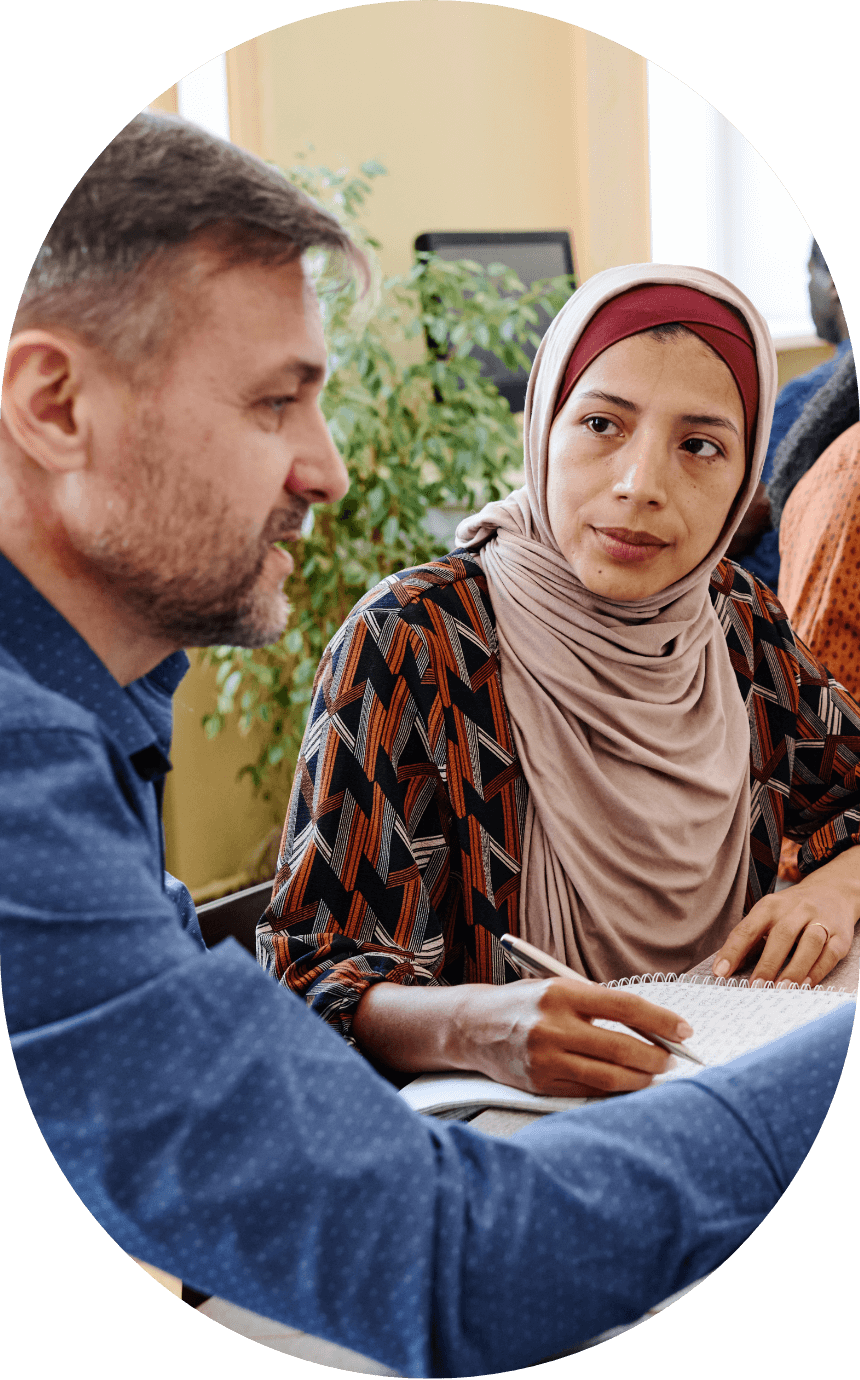
ASL interpreters ensure Deaf and Hard of Hearing participants can fully engage in government forums and meetings, shaping policies and community outcomes.

ASL interpreters help organizations connect with and engage Deaf and Hard of Hearing members of the communities they serve. Furthering missions where no one is left unheard.

Yes. Jeenie offers on-demand ASL interpreters 24/7, just like its spoken-language services.
You can connect with a qualified American Sign Language interpreter within seconds via video at any time of day. Jeenie’s ASL network includes both hearing interpreters and Certified Deaf Interpreters (CDIs) to support the Deaf and Hard-of-Hearing community.
These interpreters are available around the clock to assist with anything from medical consultations to education or business meetings. In practice, using Jeenie for ASL is as simple as opening the app (or the web platform), selecting ASL, and starting a live video session with an interpreter who will facilitate real-time communication.
Absolutely. Jeenie ensures that its ASL interpreters are highly qualified, with an average of 10 years of experience, and adhere to professional standards. Jeenie’s ASL interpreters hold nationally recognized certifications.
All Jeenie ASL interpreters follow the NAD/RID Code of Professional Conduct to guarantee ethical and accurate interpretation. In short, the interpreters you connect with through Jeenie are experienced professionals who meet rigorous quality criteria, so you can trust them in any setting requiring sign language interpretation.
Jeenie connects you to an ASL interpreter within seconds (typically in under 24 seconds)! This rapid response is a huge advantage. Many traditional interpreting services require booking an ASL interpreter in advance or waiting for availability, especially during off-hours.
By contrast, Jeenie’s Direct-To-Interpreter model means you tap a button and get an ASL professional without going through any operators or call centers.
The ability to instantly reach an ASL interpreter 24/7 is particularly valuable for urgent or unexpected situations (for example, a hospital ER or an unplanned parent-teacher meeting with a Deaf participant). Jeenie’s on-demand speed ensures that Deaf and Hard-of-Hearing individuals get equal access to communication without delays, outperforming the response times of many conventional services.
Using Jeenie for ASL is easy; you don’t need any special hardware beyond a device with a camera and internet connection. The Jeenie platform is accessible on any modern device: you can use it on a smartphone, tablet, laptop, or desktop computer. It’s also compatible across operating systems and works through the Jeenie app or a web browser.
For example, a doctor could use an iPad to bring a remote ASL interpreter into an exam room, or a teacher could use a laptop and projector to have an interpreter sign for a classroom.
Jeenie even integrates with popular meeting tools like Zoom, so if you’re running a virtual event or webinar, you can easily include an ASL interpreter on the call. In summary, Jeenie’s ASL service is designed to be device-agnostic and easy to deploy – no new software beyond the app and no dedicated video equipment needed.

